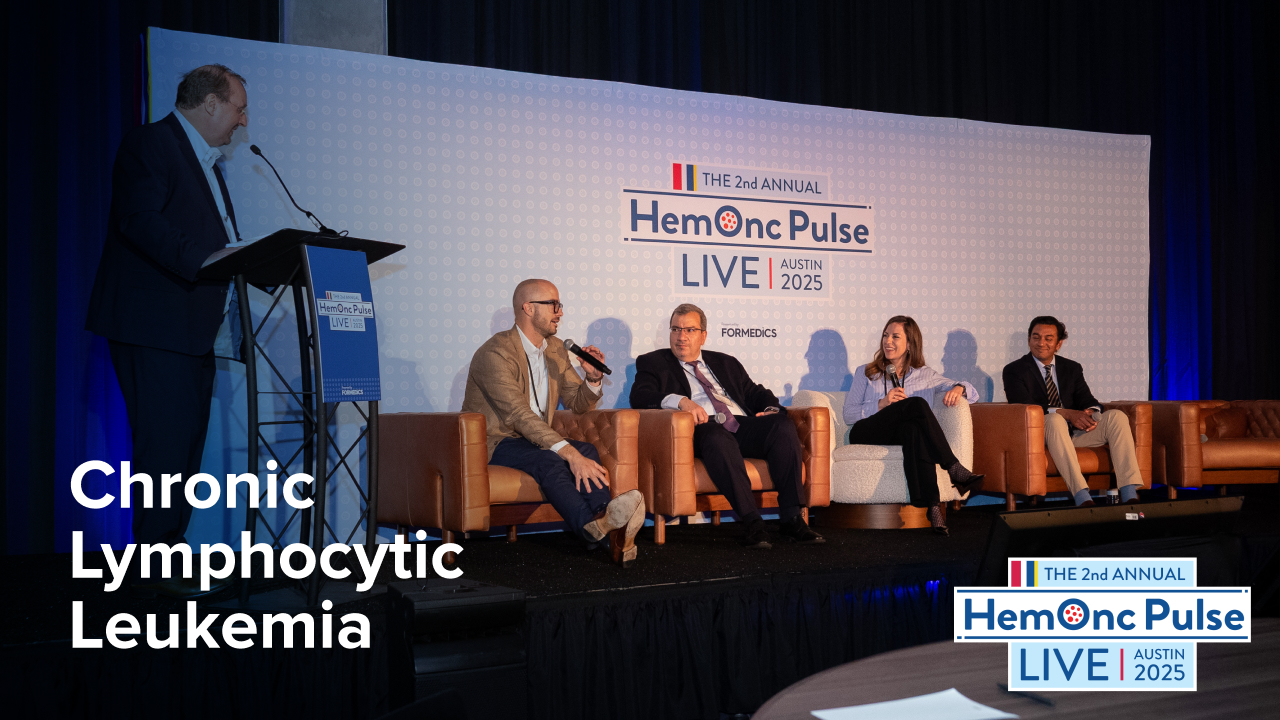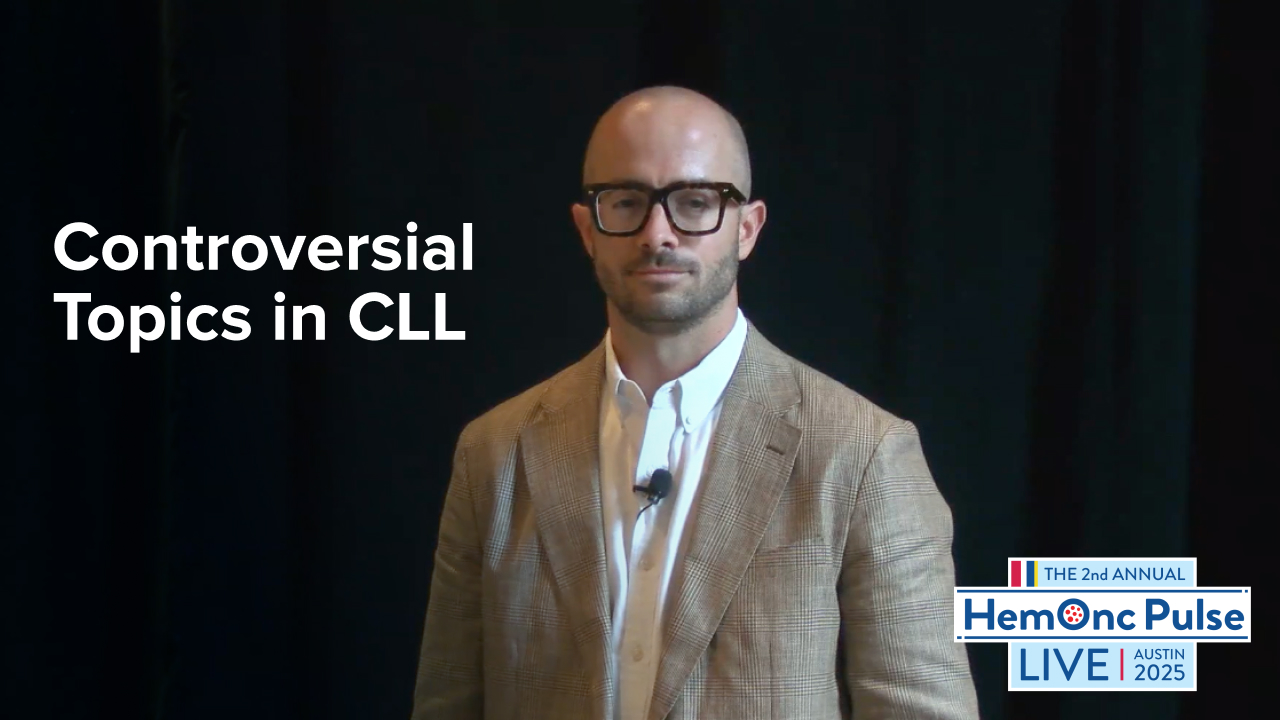
A real-world, retrospective cohort study found that adverse events (AEs) were common in patients with chronic myeloid leukemia (CML) receiving first- or second-generation tyrosine kinase inhibitors (TKIs). The results were presented at the Twelfth Annual Meeting of the Society of Hematologic Oncology in Houston, Texas.
Lead author Elias Jabbour, MD, of the University of Texas MD Anderson Cancer Center in Houston, noted, “AEs often preceded treatment adjustment, highlighting the need for better supportive care and treatment regimens with a better safety and tolerability profile for CML.”
The analysts gathered from a commercial claims database information on 2,546 patients with CML who underwent TKI treatment. In total, 882 patients received the first-generation TKI imatinib and 1,664 received second-generation TKIs (68.8% dasatinib, 22.7% nilotinib, and 8.5% bosutinib). The cohort of patients who received imatinib had a median age of 55 years and was 43.3% female, whereas the cohort who received second-generation TKIs had a median age of 52 years and was 44.1% female.
The patients who received imatinib had a median treatment period of 14.1 months, and 81.9% of that cohort had an adjustment during that period. Among them, 52.2% had interruption, 47.1% discontinuation, 34.1% treatment switch, and 16.3% dose reduction. Among patients who had treatment interruption, 34.3% had at least one AE within 30 days before the interruption. Among patients who discontinued treatment, 39.8% experienced at least one AE within 30 days before discontinuation. Among patients who had dose reduction, 48.6% had at least one AE within 30 days before the reduction.
The patients who received second-generation TKIs had a median treatment period of 16.1 months, and 78.5% of that cohort had an adjustment during that period. Among them, 56.1% had treatment interruption, 37.4% discontinuation, 28.2% treatment switch, and 25.6% dose reduction. Among patients who discontinued treatment, 54.3% experienced at least one AE within 30 days before discontinuation. Among patients who had treatment interruption, 37.7% had at least one AE within 30 days before the interruption. Among patients who had dose reduction, 57.5% had at least one AE within 30 days before the reduction.
Regarding types of any-grade AE experienced among patients receiving imatinib, 28.5% had abnormal glucose, 26.5% fatigue, 17.5% nausea or vomiting, 17% peripheral edema, 16.4% diarrhea, 15.1% cardiac arrhythmia, 13.2% arterial occlusive event, 11.6% headache, 7.8% rash, 7.7% thrombocytopenia, and 6.9% pleural effusion. Among patients receiving second-generation TKIs, 30.5% had fatigue, 28.5% abnormal glucose, 19.2% cardiac arrhythmia, 17.8% nausea or vomiting, 16.7% thrombocytopenia, 16.5% headache, 12.7% rash,12.6% diarrhea, 12.3% pleural effusion,12.1% peripheral edema, and 11.2% arterial occlusive event.
Reference
Jabbour E, Jadhav K, Wei D, et al. Adverse events (AEs) among patients with chronic myeloid leukemia (CML) receiving tyrosine kinase inhibitors and subsequent treatment adjustment: A large US commercial claims database analysis. Abstract #CML-619. Presented at the Twelfth Annual Meeting of the Society of Hematologic Oncology; September 4-7, 2024; Houston, Texas.






 © 2025 Mashup Media, LLC, a Formedics Property. All Rights Reserved.
© 2025 Mashup Media, LLC, a Formedics Property. All Rights Reserved.